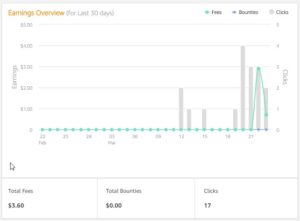Here we simply apply the ROI formula:
ROI = Return / (Direct Costs + Indirect Costs)
In this case:
-What College Costs (Direct Costs) ($436,674 for Private, $213,113 for In-State)
-What Opportunity is forgone (Indirect Costs) (1,595,698 for a minimum wage employee in California)
-What the benefit is (return) ($1,056,611 for being a librarian instead of a teacher’s aid)
ROI = $1,056,611 / (426,674 + 1,595,698)
ROI = $1,056,611 / (2,022,372)
ROI= .52
In the above example, the ROI is way below 1, coming in at .52. This would suggest the investment is extremely poor, as for every dollar invested, only 52 cents is returned. In this example it would be better to forgo college and instead work minimum wage for 6 years and then step into a teachers aid role, assuming a teachers aid and librarian give you similar job satisfaction.
Being the ‘but’ Exception:
This gets to the point where most students will say, “but.. but.. but..”. “But I have more down than this”, or “But I’m better than average and will graduate in 4 or 5 years”, or “but I got a scholarship for $5,000 a year”, or even “But I’m a Richey”. For every one of you, there’s also the person that would have to say “I have less down than this”, and “I’m worse than average and won’t graduate at all”. I hate to be the bearer of bad news, but according to the National Center for Educational Statistics, only 32% of graduates at an open-admission college graduate in 6 years, while 88% of those at a highly competitive college graduate in 6 years.
However, this is where I urge students to do the math for themselves. If you are at an in-state school, even straight A students sometimes take 5 years because they can’t get into the classes they need to graduate. Scholarship amounts can be deducted from the “direct cost” figure, but keep in mind they are often only for 4 years. Any income can be made while in school, such as through student work can be subtracted from the opportunity cost figure. Figure out to the best of your ability what your numbers are, and determine if the investment is right for you.
OK, get to the point: so is college a ripoff? Yes or No:
While we all want the answers handed to us, this is a case where no one can tell you the answer, but I can tell you precisely how to find the answer for your unique case. No guessing necessary:
If you are confident in what you want to spend your life doing, and it requires a college degree: Get it (but maybe use what you learned here to consider what school you go to and what you do while your there?). If you are going to college wholly or partially because of the earning power, calculate the ROI for your potential degree and job types. If you get a strong positive, then college is right for you. If you get a negative, look into what variables you can legitimately change- such as switching to a cheaper college or a better field of study. If that doesn’t work out in your favor, then you know that college isn’t right for you.
When I advise individuals and teams on business plans, I always stress the importance of a business plan. While some people will downplay its importance, I assure any business startup that their business plan is of the utmost importance. I don’t care about the actual output, format, or anything similar, but virtually every person who I have ever worked with on a business plan gets to the point where they say, “The math doesn’t work”. They realize that the business they designed doesn’t play out- the returns don’t justify the investments, and the business model doesn’t work.
It is the next step that is the most important part of the business planning process to me: Once you see it doesn’t work, you can see why it doesn’t work, and change your plan accordingly. It doesn’t mean you give up on a business startup, it means you rework it. Some businesses decide that instead of having a specific restaurant location, they could have a mobile food truck. Others realize that they can’t make the product cheap enough to sell through a wholesaler, but if they generate a direct-sales model, they can be profitable.
This is what those seeking college need to do. Once they calculate out the results of their educational plan, many will discover the return doesn’t justify the investment. In those cases, it is not simply a “don’t go to college”, but rather it is, “Let’s play with the inputs and outputs a bit”.
My wife went to a local regional college for 2 years, the Middletown branch of Miami University, before finishing her last two years at the Oxford Branch. This saved her considerable amounts of money. Other students choose to go to a 2 year school before they go to a 4 year school. Others use it as motivation to seek out more scholarships, or to choose a slightly less prestigious college who offers them drastically more money. There are a large number of variables in the equation which can be tweaked.
Individuals can lower their direct cost, lower their opportunity costs, or increase their return to change the equation in colleges’ favor. Students can lower the direct cost through various ways including choosing cheaper programs, finishing sooner, and getting scholarships. Students can lower opportunity costs by working full time or part time while in school to produce the same or similar income as if they were not working, and by finishing school sooner. Students can increase their return by choosing careers prospects which are higher paying. By manipulating these three factors, college can make a lot of sense.
Another Look at “No Brainer” degrees:
The example was assuming minimum wage and a liberal arts major choosing to become a librarian. Other careers, such as medicine and engineering are often viewed as “No Brainers”. Imagine you are trying to decide between going to private school to become an automotive engineer and becoming a mechanic? The average salary for an auto mechanic is $40,720 and can often be learned in trade school even before another student would go to college, while an automotive engineer may make $73,721 according to payscale.com. You may start out at only about $23,000 straight out of highschool as a technician, but with your $138,000 head start and $437,000 less in direct costs, it is actually a closer calculation than you might guess. Try it out!
To give you a hint, the 1.1 million in extra earning power may be offset by the $437k in direct costs and $1.42 million in future value derived from saving 80% of your post-tax income over the first 6 years. As long as the mechanic could save about 45% of their income over those first 6 years and invest it into 7% return, the two options are about even.
Now getting the average mechanic to pocket 45% of their income over the first 6 years of their career might seem like its as challenging as convincing your 4 year old to go to bed, but still its fairly astounding when you really think about it. Even graduating college in 4 years happens less than 20% of the time. Therefore If your a parent and your kid wants to become a mechanic, maybe letting them stay at home for 6 years dumping their cash into Roth IRA isn’t a bad parenting move.
Sources:
https://www.forbes.com/sites/noodleeducation/2015/05/28/more-than-half-of-college-faculty-are-adjuncts-should-you-care/#5c99dac61600
https://www.glassdoor.com/Salaries/franklin-adjunct-professor-salary-SRCH_IL.0,8_IC1145714_KO9,26.htm
https://nces.ed.gov/fastfacts/display.asp?id=37
http://www.collegedata.com/cs/content/content_payarticle_tmpl.jhtml?articleId=10064
https://www.nytimes.com/2014/12/02/education/most-college-students-dont-earn-degree-in-4-years-study-finds.html
https://www.usnews.com/news/blogs/data-mine/2014/10/07/student-loan-expectations-myth-vs-reality
https://nces.ed.gov/fastfacts/display.asp?id=40
http://www.payscale.com/research/US/Job=Automotive_Engineer/Salary
http://www.payscale.com/research/US/Job=Librarian/Salary


